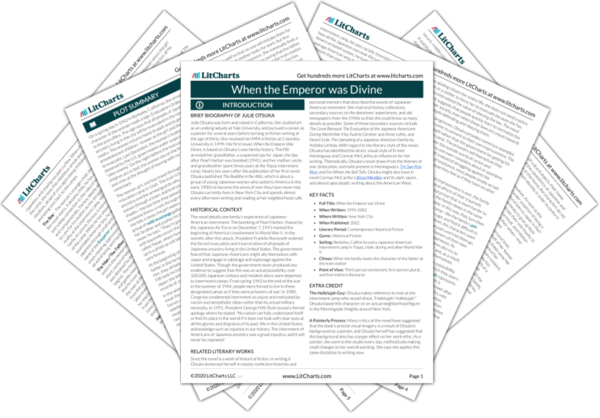Here, the rosebush represents a hypothetical world where the family never faced internment and could grow freely without restraint. Yet, in the real world of the novel, the rosebush, and the freedom it represents, was stolen from them. Now the mother works long hard hours, the children conform to the strict rules of the model minority, and the father has withdrawn almost entirely from the world. Though they are technically “free” because they are no longer in the camp, they still do not have the freedom to live their lives as they desire. They can only imagine the wild, creative freedom of the rosebush (or the wild horses), as they cannot ever claim this freedom for themselves again.


